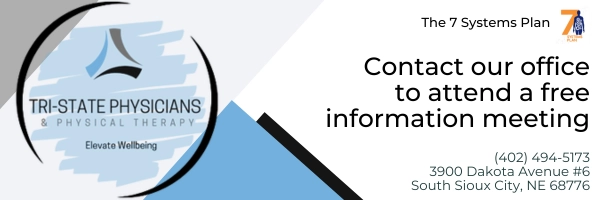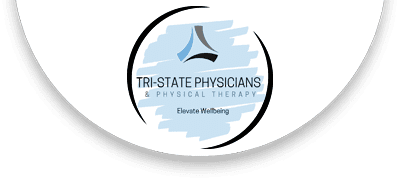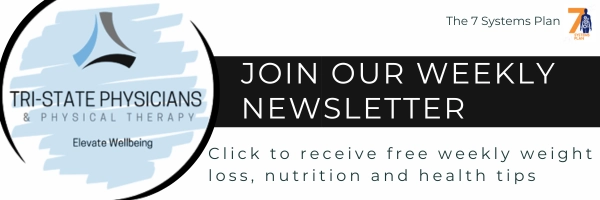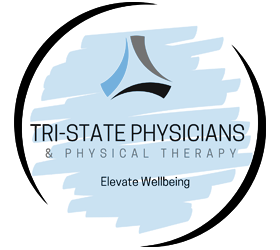Are Nightshades Harming Your Health in South Sioux City NE?
Should You be Eating Nightshades in South Sioux City NE ?
Nightshade vegetables often spark heated debates among health enthusiasts. Potatoes, tomatoes, peppers, and eggplant—they’re all part of this intriguing family. Proponents rave about their antioxidant-rich nature, claiming they can be your allies in the fight against cancer, heart disease, DNA damage, and inflammation.
Others warn us about lectins and alkaloids lurking in these veggies, arguing that they could spell trouble. Think diarrhea, nausea, irritable bowel, joint pain – you name it.
So, where does the truth lie amidst all this debate?
What Exactly Are Nightshades in South Sioux City NE ?
They are part of the Solanaceae family, a diverse bunch that includes everything from fruits and vegetables to herbs, shrubs, and weeds. Their distinguishing features include five-petal flowers and leaves alternating in a staggered pattern along the stems—the nightshade trademark.
Not all nightshades are created equal. Despite their abundance, only a few nightshades are deemed safe to eat.
You are not alone if you feel confused. Let’s break it down with some science-backed clarity.
Types of Nightshades
You may be surprised that edible nightshades are likely a regular part of your diet. From bell peppers to spicy varieties, eggplants, potatoes (excluding sweet potatoes), tomatoes, and tomatillos, these culinary staples grace our tables and add flavor to our dishes. However, it’s crucial to steer clear of poisonous nightshades like tobacco and the deadly nightshade plant scientifically known as Belladonna.
Health Benefits of Edible Nightshade Vegetables
Before you swear off nightshades altogether, consider their nutritional benefits. These vegetables are packed with essential nutrients such as vitamins, minerals, protein, and fiber. Let’s take a closer look:
Eggplants: Rich in fiber, potassium, and vitamins B1, B6, and K, eggplants boast compounds that may offer protection against DNA damage and diseases like cancer. Additionally, their antioxidants support heart health and promote bowel regularity.
Tomatoes: A treasure trove of biotin, potassium, iron, and zinc, tomatoes shine with lycopene, an antioxidant renowned for reducing inflammation and combating oxidative stress. Cooking tomatoes with healthy fats enhances lycopene absorption, contributing to its myriad health benefits, including prostate cancer prevention and heart health support.
Potatoes: Offering various health benefits depending on their color, potatoes are excellent sources of fiber, potassium, vitamin C, and vitamin B6. Their resistant starch promotes digestion and may aid in colon cancer prevention. Their peels are also rich in nutrients essential for bone health, like iron, phosphorus, calcium, magnesium, and zinc. Red and purple potatoes are a source of antioxidants, especially carotenoids, which protect against chronic diseases and inflammation. Purple and blue potatoes reduce oxidative damage and inflammation.
Peppers: From green to purple, mild to hot, peppers dazzle with their vibrant hues and nutritional richness. Packed with vitamins A and C, potassium, and folic acid, peppers are brimming with antioxidants that bolster heart health and may even combat cancer.
So, before you dismiss nightshades as villains in your diet, consider the wealth of nutrients they offer and incorporate them wisely into your culinary adventures.

Where Does the Nightshade Controversy Come From?
Despite the numerous health benefits of incorporating nightshades into your diet, considerable controversy surrounds these plant foods within the health community.
One of the recent advocates for the “nightshades are dangerous” perspective is Dr. Stephen Gundry, known for his “Gundry Way” eating plan. A search online unveils the numerous claims he has made regarding the supposed health risks of nightshades, particularly their detrimental effects on the Digestive System.
He highlights two main reasons to avoid nightshades: lectins and alkaloids. He considers lectins (in nightshade peels and edible seeds like grains and legumes) toxic and inflammatory, resistant to digestive enzymes, and potentially leading to discomfort if consumed excessively with symptoms such as diarrhea, heartburn, acid reflux, nausea, irritable bowel, joint pain, and swelling. Gundry also believes that alkaloids, including solanine, nicotine, and capsaicin, cause inflammation and joint pain in some individuals.
What Does Science Say About Nightshades?
What does research reveal about these claims? Are lectins and alkaloids genuinely hazardous to health, necessitating the avoidance of tomatoes and potatoes altogether? Let’s delve into the scientific evidence.
Lectins
We covered this in the last newsletter, but here is a quick review. Lectins are proteins found in many plants, with some types posing potential risks if consumed in large quantities, such as the lectin hemagglutinin in raw kidney beans. However, thorough cooking or processing effectively neutralizes lectins, rendering concerns about adverse health effects from cooked foods containing lectins unfounded.
Alkaloids
While alkaloids are indeed toxins in large doses, the levels present in nightshade vegetables are typically low. For instance, the solanine content in potatoes is not of concern unless the potatoes have turned green due to light exposure, indicating increased levels of glycoalkaloids. However, even in such cases, the amount of solanine consumed would need to be exceptionally high to pose any health risk.
In conclusion, while some caution may be warranted regarding specific circumstances, such as consuming green potatoes, scientific evidence does not support widespread concerns about the safety of nightshade vegetables.
So, before you bid farewell to your favorite tomato-based sauces or potato dishes, rest assured that scientific research indicates no cause for alarm regarding their consumption.

Who (if Anyone) Should Avoid Nightshades?
While nightshades generally don’t pose life-threatening risks and are, in fact, healthy for most individuals, the 7 Systems Plan teaches that certain groups may benefit from avoiding them.
If you have a known food allergy or sensitivity to specific nightshades, limiting or eliminating them from your diet is advisable. Some individuals have reported experiencing painful inflammatory symptoms that subside upon eliminating nightshades, indicating a potential allergic reaction. Rare cases of acute allergic reactions to nightshades, such as tomatoes, have been documented, so if you fall into this category, it’s best to avoid them.
Individuals with inflammatory bowel diseases like Crohn’s disease or ulcerative colitis may also relieve symptoms by avoiding nightshades. These conditions can lead to intestinal permeability, and while primarily based on anecdotal evidence, some studies suggest that the alkaloids in potatoes, fiber in tomatoes, and capsaicin in peppers may exacerbate intestinal permeability in specific individuals.
Some patients with autoimmune diseases report experiencing fewer symptoms upon eliminating nightshades from their diet. Paying attention to how specific foods affect your well-being is always prudent.
Should You Eat Nightshades?
For generally healthy individuals who tolerate nightshades well, excluding them from your diet is unnecessary unless you consume excessive amounts or encounter green potatoes. Nightshade vegetables like potatoes, tomatoes, eggplants, and peppers offer valuable nutrients and health benefits you can easily incorporate into meals. However, if you’re not fond of nightshades or suspect sensitivity, rest assured that there are plenty of other nutritious and delicious vegetable options to explore.
For Your Health
Dr. Pat
Video of the Week
Sign up below to get our weekly newsletter
sent directly to your email inbox!
OFFICE HOURS
Monday
8:00am - 6:00pm
Tuesday
8:00am - 6:00pm
Wednesday
8:00am - 6:00pm
Thursday
8:00am - 6:00pm
Friday
8:00am - 6:00pm
Saturday
8:00am - 10:45am
Sunday
Closed
Tri-State Physicians &
Physical Therapy Clinic
3900 Dakota Avenue #6
South Sioux City, NE 68776




